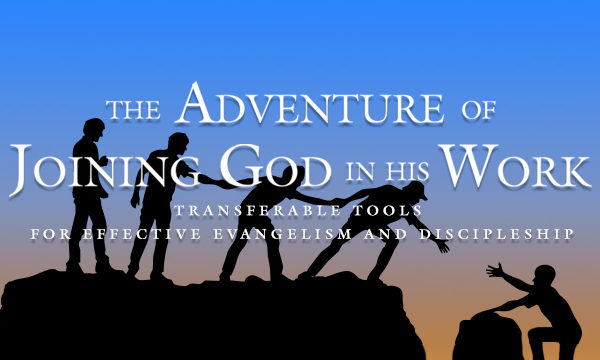Back to series



C.S. Lewis's Obstacles to Faith
Click here to open a Print - Friendly PDF
C.S. Lewis’s Pain in Early Life Lewis had one sibling, Warren, who was three years older and with whom he remained friends all his life. Lewis’s earliest memories involve “endless books” in the study, dining room, cloakroom, bedrooms and piled as high as his shoulder in the attic. On the often-dreary days, time would be spent in reading and in imaginative games involving “dressed animals” and “knights in armor.” These were the subjects of Lewis’s first novel, Boxen, which he wrote at the age of twelve.
The most shattering event of Lewis’s early life was the death of his mother when he was nine years old. Lewis says in his autobiography, Surprised by Joy, “With my mother’s death all settled happiness disappeared from my life. There was much fun, many pleasures, many stabs of joy; but no more of the old security. It was sea and islands now; the great continent had sunk like Atlantis.”1 At this point he lost not only his mother but also, in effect, his father. Albert Lewis became emotionally withdrawn and decided to send both sons to boarding school, an experience that proved very difficult for both boys. Warren Lewis later wrote, “With his uncanny flair for making the wrong decision, my father had given us helpless children into the hands of a madman.”2 The boarding school’s headmaster, whom the students called “Oldie,” inflicted harsh punishment on those who failed their lessons. He was later declared insane, and the school was closed.
 Problems with prayer. During this period Lewis attended church and attempted to take the Christian faith seriously. He tried to pray every night but developed what he describes as a “false conscience” about prayer. He had been told that it was not enough to say your prayers; you also had to think about what you were saying. As soon as he finished his prayers each night, he would ask himself, “Are you sure you were thinking about what you were saying?” The answer was inevitably no. Then he would say his prayers again, sometimes multiple times. The result was insomnia and nightly torment. Lewis wrote, “Had I pursued the same road much further, I think I should have gone mad.”3 Lewis later wrote about the difficulties of prayer in Letters to Malcolm.
Problems with prayer. During this period Lewis attended church and attempted to take the Christian faith seriously. He tried to pray every night but developed what he describes as a “false conscience” about prayer. He had been told that it was not enough to say your prayers; you also had to think about what you were saying. As soon as he finished his prayers each night, he would ask himself, “Are you sure you were thinking about what you were saying?” The answer was inevitably no. Then he would say his prayers again, sometimes multiple times. The result was insomnia and nightly torment. Lewis wrote, “Had I pursued the same road much further, I think I should have gone mad.”3 Lewis later wrote about the difficulties of prayer in Letters to Malcolm.
Unbelief confirmed. At Chartres, a later boarding school, one of Lewis’s teachers introduced him to the occult. He also began to grapple with doubts about God, which rose from the problem of evil in the world and from what he perceived as the similarity between Christianity and paganism. In addition, he struggled with sexual temptation. The toxic combination of inner and outer pressures led to the loss of whatever faith he might have had. He had lost not only his faith but his virtue and simplicity. (Years later, after he came to faith in Christ, he rid himself of unchastity, atheism and the occult but remained subject to one acquired habit: smoking.)4
Chronological snobbery. One factor that worked against faith in Lewis’s mind and heart was what he later called his “chronological snobbery.” By that he meant “the uncritical acceptance of the intellectual climate of our own age and the assumption that whatever has gone out of date is on that count discredited.” Lewis’s friend Owen Barfield helped Lewis dismantle his prejudice against old ideas by arguing that if an idea seems outdated, we must ask, “Why did it go out of date?” and “Was it ever refuted (by whom, where, and how conclusively)?”5 Later in his life, Lewis directly and indirectly took on chronological snobbery.
Problem of evil. Lewis’s struggle with the problem of evil persisted until his conversion and even beyond. These lines from Lucretius echo Lewis’s own quandary:
Had God designed the world, it would not be A world as frail and faulty as we see.6
While Lewis eventually arrived at an intellectual resolution of the difficulty, the emotional struggle continued, especially at the death of his wife, Joy. He describes his intellectual wrestling in The Problem of Pain, and his emotional struggle in A Grief Observed.
Parallel mythologies. At the time and place of Lewis’s education, classic Christianity was the dominant worldview. It was assumed that pagan religions and mythologies were interesting but false, while Christianity, though similar to them in many ways, was true. Lewis dared to wonder, on what grounds should Christianity be exempt from the verdict of “false”? Why was this religion—and this one alone—true?
The problem of similar mythologies remained an obstacle for Lewis right up until his conversion. As we will see later, a discussion with J.R.R. Tolkien was instrumental in resolving this conflict. Lewis later wrote about myth in a number of his nonfiction works and in one of his novels, Till We Have Faces.
Immersion in rationalism. When he was sixteen, Lewis was tutored by a brilliant teacher named W.T. Kirkpatrick. “Kirk,” or the “Great Knock” as he was also called, taught Lewis to analyze, think, write, and speak clearly and logically.
When they first met at the train station, young Jack (as he chose to call himself) commented to Kirk that he had not expected the wildness of the scenery of Surrey. “Stop,” said Kirk. “What do you mean by wildness and what grounds do you have for not expecting it?” As Jack attempted to answer, it became increasingly clear that he had no distinct idea about the word wildness and that “insofar as I had any idea at all, wildness was a singularly inept word.” “Do you not see,” concluded the Great Knock, “that your remark was meaningless?” Thinking that the subject had been dropped, Jack proceeded to sulk. Never was he more mistaken. Kirk inquired about the basis of Jack’s expectations of the flora and geology of Surrey. Kirk concluded, “Do you not see then, that you had no right to have any opinion whatever on the subject?” It had never occurred to Jack that his thoughts needed
to be based on anything.7
Such rigorous interrogation set the tone of his tutelage under Kirk, and it was of immeasurable benefit to Lewis. Much of the clarity of his writing, his careful choice of words, his well-considered arguments for the faith and his later tutorial style were shaped during this period. Lewis says: “My debt to him is very great, my reverence to this day undiminished.”8 Some have said that Lewis wrote many of his later works with a sense that Kirk (although by that time dead) was looking over his shoulder.
Kirk was an atheist and a rationalist. Lewis called him nearly “a purely logical entity. “9 Although he never attacked religion in Jack’s presence, his rigorous rationalism (of the nineteenth-century type) reinforced and provided ammunition for Lewis’s unbelief. Kirk might have provided inspiration for such characters as Mr. Enlightenment in The Pilgrim’s Regress or McPhee in That Hideous Strength. Later, Lewis critiqued rationalism—now called modernism—in The Pilgrim’s Regress and in other writings.
Imagination versus reason. Loving literature as he did, Lewis was forced to consider the tension between his atheism and all the poetry and novels that wrestled with the questions of meaning, dignity, truth, goodness, beauty and immortality. He came to believe philosophically that the universe was a grim and meaningless place, yet in his imagination he yearned for the satisfaction of the deep human aspirations he found in literature. A contradiction emerged between his reason and his imagination. Was his reason right and the longings evoked by his imagination meaningless? Or was his imagination right when it pointed to real satisfaction for human aspirations, and his atheism wrong? He resolved this tension in Surprised by Joy.
As one of his first steps in his journey to faith, Lewis identifies a time when his imagination was “baptized.” It occurred while he was reading a copy of George MacDonald’s Phantastes on a train ride. As he read, a “new quality” touched his life, what he described at first as a “bright shadow,” but later came to realize was “holiness.” That night his imagination was “baptized,” although, he says, “the rest of me not unnaturally took longer.”10
Later Lewis came to see imagination as a key to the meaning of the cosmos. We will look at the prominent place of imagination in his view of life and see how his fiction, as much as his nonfiction, points to Christ.
Disbelief in miracles. During his atheist years Lewis simply assumed that miracles do not happen and that it would be naive and unsophisticated to think they do. He was shocked to learn that Neville Coghill and J.R.R. Tolkien, some of the most intelligent and best informed people he knew, were supernaturalists—that is, they believed that there is more to the universe than the natural world we see and experience. Even more stunning to Lewis was a fireside comment by one of the most hard-boiled atheists he knew: that the “historicity of the gospels was really surprisingly good.” The atheist referred to pagan mythology of a “dying god” who rose again, then mused, “It almost looks as if it really happened once.” The impact of this statement on Lewis was immense. If this militant unbeliever, the “toughest of the toughs,” was not safe, where could Lewis turn? Was there no escape?11 Lewis was forced to reexamine his anti-supernatural assumptions. He later wrote about miracles in a number of his essays and in his book Miracles.
Obstacles Overcome
One by one, Lewis’s arguments against God were countered and his obstacles to faith were knocked down. Already his imagination had been “baptized” and his reason satisfied. He felt the “steady, unrelenting approach of Him whom I so desperately desired not to meet”12 until he came to believe in God and ultimately to believe in Christ as the Son of God.
 In his writings Lewis does not develop his defense of faith in a systematic fashion. Rather he writes about the obstacles that once stood in the way of faith for him. The issues that stood in the way of his belief in God have also been stumbling blocks for many of his readers, which is one reason so many people from various backgrounds resonate with Lewis.
In his writings Lewis does not develop his defense of faith in a systematic fashion. Rather he writes about the obstacles that once stood in the way of faith for him. The issues that stood in the way of his belief in God have also been stumbling blocks for many of his readers, which is one reason so many people from various backgrounds resonate with Lewis.
In summary, some of the factors that led Lewis into unbelief were;
• early pain over the loss of his mother
• difficulties with prayer
• chronological snobbery
• the problem of evil in the world
• parallels between mythology and Christianity
• indoctrination into rationalism
• tension between reason and imagination
• disbelief in miracles.
Conclusion
For more information on Lewis’s biography, go to articles by Art Lindsley and Lyle Dorsett on Lewis’s life. For more on Lewis’s conversion, read Art Lindsley’s review of David Downing’s The Most Reluctant Convert: C.S. Lewis’s Journey to Faith, or to the book itself.
Notes
1 C.S. Lewis, Surprised by Joy (New York: Harcourt Brace,
1984), p. 21.
2 C.S. Lewis, Letters of C.S. Lewis, ed. Walter Hooper, rev. ed.
(New York: Harcourt Brace, 1988), p. 24.
3 Lewis, Surprised by Joy, p. 62.
4 Ibid., p. 70.
5 Ibid., pp. 207-8.
6 Ibid., p. 65.
7 Ibid., pp. 134-35.
8 Ibid., p. 148.
9 Ibid., p. 135.
10 Ibid., p. 181.
11 Ibid., pp. 223-24.
12 Ibid., p. 228.

Arthur W. Lindsley
Senior Fellow for Apologetics, CSLI Arthur W. Lindsley is the Vice President of Theological Initiatives at the Institute for Faith, Works, & Economics. He has served at the C.S. Lewis Institute since 1987 both as President until 1998 and currently as Senior Fellows for Apologetics. Formerly, he was director of Educational Ministries at the Ligonier Valley Study Center, and Staff Specialist with the Coalition for Christian Outreach. He is the author of C.S. Lewis's Case for Christ, True Truth, Love: The Ultimate Apologetic, and co-author with R.C. Sproul and John Gerstner of Classical Apologetics, and has written numerous articles on theology, apologetics, C.S. Lewis, and the lives and works of many other authors and teachers. Art earned his M.Div. from Pittsburgh Theological Seminary and a Ph.D. in Religious Studies from the University of Pittsburgh. COPYRIGHT: This publication is published by C.S. Lewis Institute; 8001 Braddock Road, Suite 301; Springfield, VA 22151. Portions of the publication may be reproduced for noncommercial, local church or ministry use without prior permission. Electronic copies of the PDF files may be duplicated and transmitted via e-mail for personal and church use. Articles may not be modified without prior written permission of the Institute. For questions, contact the Institute: 703.914.5602 or email us.
COPYRIGHT: This publication is published by C.S. Lewis Institute; 8001 Braddock Road, Suite 301; Springfield, VA 22151. Portions of the publication may be reproduced for noncommercial, local church or ministry use without prior permission. Electronic copies of the PDF files may be duplicated and transmitted via e-mail for personal and church use. Articles may not be modified without prior written permission of the Institute. For questions, contact the Institute: 703.914.5602 or email us.
-
Recent Podcasts
Fix Your Eyes Upon Jesus
by Steven Garber, Aimee Riegert on June 27, 2025Perhaps the most prominent and current figure who...Read More
-
An Honest Search for God – Dr. Jay Medenwaldt’s Story
by Jana Harmon, Jay Medenwaldt on June 20, 2025
-
Moving Beyond Forgiveness to an Abundant Life
by Robert Saucy, Aimee Riegert on June 13, 2025
-
Recent Publications
Are Miracles Possible
by Christopher L. Reese on June 1, 2025The 21st century has provoked many conversations and...Read More
-
Is God Just, Not Fair?
by Jennifer Rothschild on May 15, 2025
-
Seeking Dietrich Bonhoeffer
by Joseph A. Kohm on April 29, 2025
0
All Booked
0.00
All Booked
0.00
All Booked
24720
The Adventure of Joining God in His Work Live Online Small Group 7:00 PM CT
https://www.cslewisinstitute.org/?event=the-adventure-of-joining-god-in-his-work-live-online-small-group-700-pm-ct&event_date=2025-09-16®=1
https://www.paypal.com/cgi-bin/webscr
2025-09-16

Next coming event
Days
Hours
Minutes
Seconds
The Adventure of Joining God in His Work Live Online Small Group 7:00 PM CT
On September 16, 2025 at 7:00 pmSpeakers

Arthur W. Lindsley
Senior Fellow for Apologetics, CSLI
Team Members





